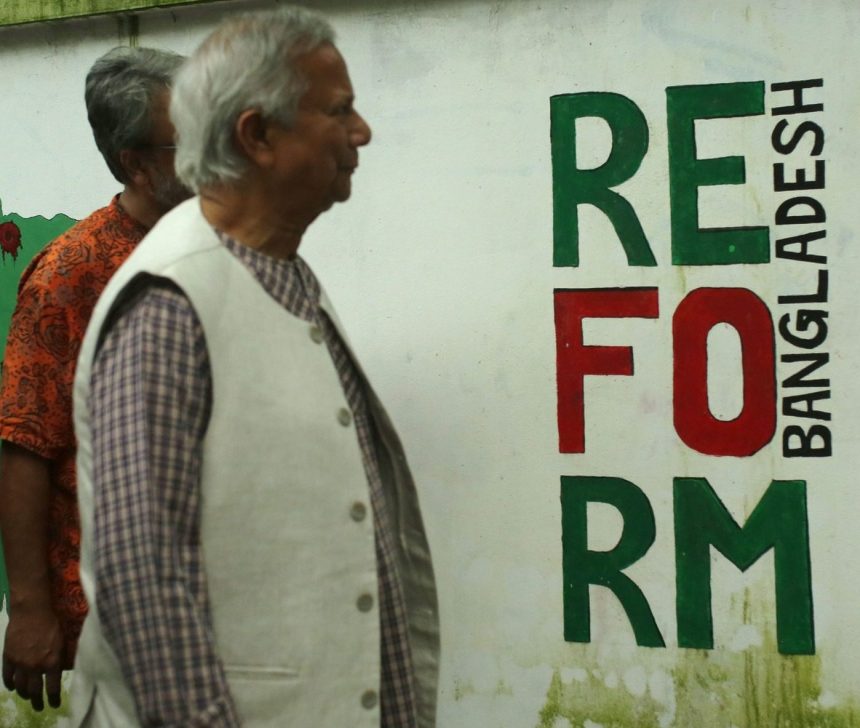In a bid to resolve the country’s deepening political crisis, Chief Adviser Muhammad Yunus is set to hold two back-to-back meetings on Sunday evening with 20 leaders representing various political parties.
The discussions will take place at his official residence Jamuna.
Invitations were extended to one representative from each of the parties that supported the July Uprising — a movement that significantly altered the political landscape and ultimately led to the fall of the Awami League-led government.
These talks come at a critical time, as speculation swirls over Yunus’s possible resignation and the delayed announcement of a definitive election roadmap.
According to sources close to the interim government, the first round of discussions will begin at 5:00pm.
Among the attendees will be prominent political figures such as Col (retd) Oli Ahmed, Mahmudur Rahman Manna, Saiful Haque, Zonayed Saki, Hasnat Qayyum, Mujibur Rahman Monju, Mujahidul Islam Selim, Khalequzzaman Bhuiyan, Tipu Biswas, Sheikh Rafiqul Islam Bablu, and Shahid Uddin Mahmud Swapan.
A second meeting, scheduled for 6:00pm, will bring together nine senior leaders from Islamist-oriented parties.
Expected participants include Maulana Sadiqur Rahman, Rezaul Karim, Mamunul Haque, Ahmad Abdul Quader, Azizul Haque Islamabadi, Manjurul Islam Afendi, Nurul Haque Nur, Maulana Musa Bin Izhar, and Mufti Shakhawat Hossain Raji.
These meetings follow a series of high-stakes consultations held on Saturday evening between Yunus and top leaders of the BNP, Jamaat-e-Islami, and the National Consensus Party (NCP).
Those discussions reportedly focused on breaking the ongoing political stalemate and outlining a potential roadmap for national elections — a topic that has grown increasingly contentious in recent weeks.
Amid growing pressure from political parties and civil society, the interim government has been criticised for failing to deliver a clear election schedule, leading to increasing calls for Yunus’s resignation. Speculation intensified after conflicting statements from government officials and the army chief, who advocated for elections to be held by December.


